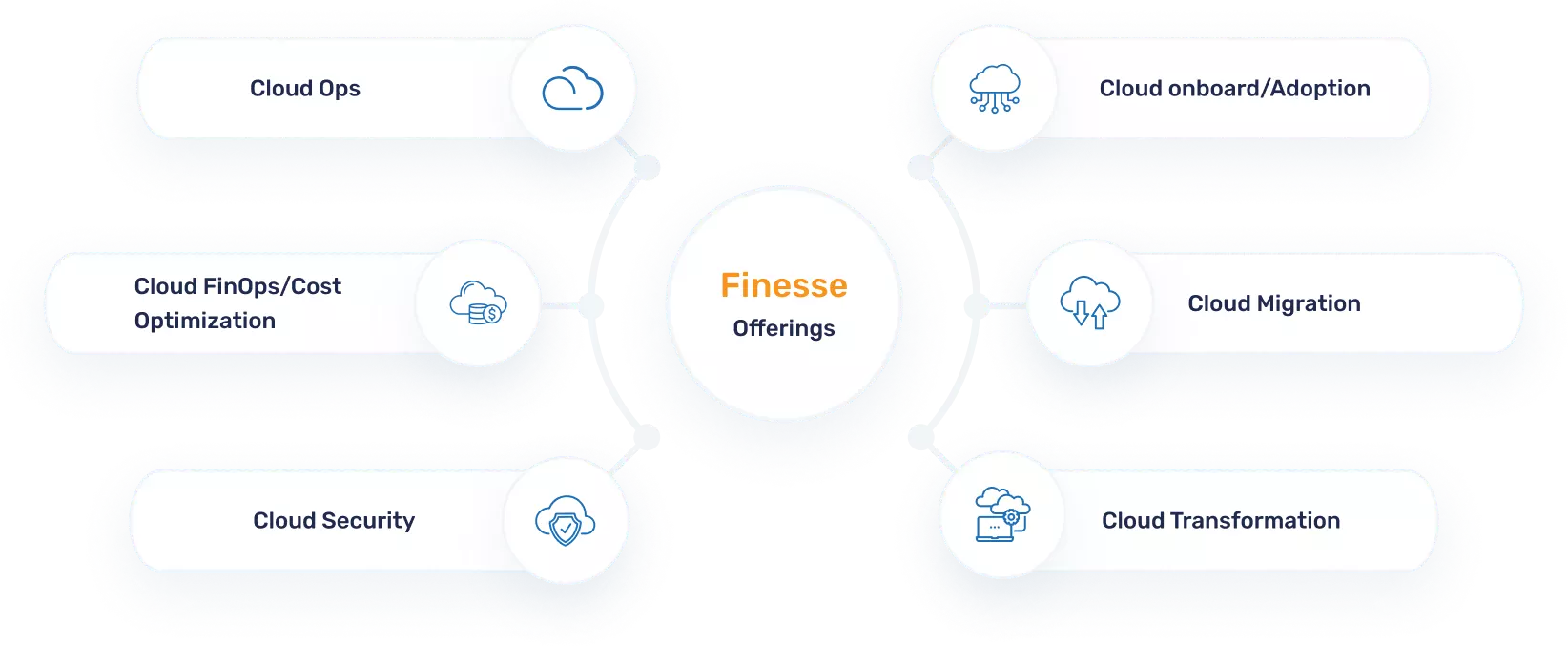Managed services are an important part of cloud computing. Cloud computing service providers offer businesses the ability to monitor, manage and optimize their cloud resources without having to invest in additional infrastructure or personnel. Consulting services also help businesses make informed decisions about their cloud strategy and ensure that they are making the most of the available cloud offerings.
Cloud onboarding, migration, monitoring and reporting, resource optimization, backup, and security are some key aspects of Cloud Computing that require special attention to ensure that businesses get maximum value from their cloud investments.


Cloud adoption has become increasingly popular in recent years, with more organizations recognizing its many benefits. Some of the key benefits of cloud adoption include increased scalability, flexibility, and cost savings.
Cloud adoption also provides organizations with the ability to access the latest technology and innovations. Cloud providers are constantly updating their services and offerings, which means that organizations that adopt cloud computing can stay ahead of the curve when it comes to technology. This can also help organizations to improve their competitive edge in their field of business.
Cloud migration is the process of moving data, applications, and workloads from on-premises systems to the cloud. Cloud migration as a service involves moving entire IT environments to the cloud or moving specific applications or workloads as needed.
Organizations should consider moving to the cloud because it can provide them with many benefits, such as scalability, cost savings, improved agility, access to the latest technology and innovations, improved security and compliance, and flexibility. By moving to the cloud, organizations can reduce their IT costs, improve their agility, and stay competitive in today’s rapidly changing business environment. Additionally, cloud computing service providers handle the maintenance and updates of the infrastructure, which can free up the organization’s resources to focus on their core business.
Cloud transformation is the process of moving your business operations and applications from on-premises systems to the cloud. This shift allows companies to take advantage of the many benefits of cloud computing, such as increased scalability, flexibility, and cost savings.
One of the key drivers of cloud transformation is the need for organizations to be more agile and responsive to changing market conditions. Cloud computing allows businesses to quickly scale up or down their IT resources as needed without the need for expensive and time-consuming upgrades to on-premises systems.
To achieve a successful cloud transformation, it is important to have a clear strategy in place. This includes understanding your current IT landscape, identifying which applications and workloads should be moved to the cloud, and developing a plan for migrating them. It’s also important to have a team in place that is experienced in cloud computing and can provide guidance and support throughout the process.
Overall, a cloud transformation solution is a key step for organizations looking to stay competitive in today’s rapidly changing business environment. By taking advantage of the many benefits of cloud computing, organizations can improve their agility, reduce costs, and stay ahead of the technology curve.
Cloud Operations (CloudOps) is the practice of managing the delivery, tuning, optimization, and performance of workloads and IT services that run in a cloud environment, including multi and hybrid, in the data center and at the edge.
CloudOps refers to cloud operations, a combination of network, security, performance, device management, help desk and other tasks that keep cloud-native applications and underlying infrastructure up and running.
Cloud FinOps, also known as cloud financial operations, is the practice of managing the financial aspects of cloud computing. This includes managing costs, optimizing usage, and ensuring compliance with financial policies and regulations.
Cloud FinOps is becoming increasingly important as organizations continue to adopt cloud computing. With the help of Cloud FinOps, organizations can better manage their cloud costs, optimize their usage, and ensure compliance with financial policies and regulations. This allows them to fully realize the benefits of cloud computing while also ensuring that they are not overspending on unnecessary resources.

Cloud security refers to the measures that are taken to protect data, applications, and infrastructure in cloud computing environments from unauthorized access, use, disclosure, disruption, modification, or destruction.
Cloud security is crucial for organizations using cloud computing because sensitive business data, customer personal information, and other confidential information are stored and processed in the cloud. Without proper security measures, this information can be vulnerable to cyber-attacks and data breaches.
Finesse, as a leading Cloud computing service provider in the UAE and worldwide, plays a vital role in ensuring cloud security by implementing robust security protocols and compliance standards. It offers a range of security features and tools designed to protect cloud environments, helping organizations safeguard their data and maintain trust with their customers.

"*" indicates required fields
"*" indicates required fields